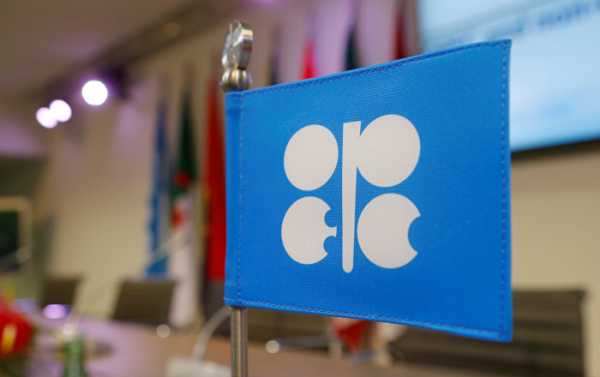
Iranian officials say OPEC’s recent decision to cut output will reflect positively on the Islamic Republic’s economy, as Tehran is still hoping to maintain some of its oil exports despite stringent US sanctions.
Kristian Rouz — Iranian Oil Minister Bijan Zanganeh has said he is confident OPEC will be able to implement the new round of cuts to crude production aimed at boosting prices. The official’s remarks come after the oil cartel and non-OPEC member Russia met in Vienna earlier this month and agreed in principle to reduce their combined output.
Meanwhile, Iranian officials are also hopeful that the Islamic Republic will be able to export some of its oil despite the re-enforcement of US sanctions, and an apparent reluctance of Iran’s traditional customers to continue trading with Tehran.
In a statement on his Twitter account Sunday, Oil Minister Bijan Zanganeh welcomed OPEC’s willingness to cut production in order to support international oil prices. He suggested internal political differences within the cartel should not become an obstacle to OPEC’s common interest of bolstering world oil prices.
“OPEC… has shown the capacity in which members can hold talks and reach important results regarding their common interests despite having the most intense political disputes or even military conflicts (such as during the Iran-Iraq war),” Zanganeh wrote.
The minister’s remarks drew particular scrutiny in the wake of OPEC’s alleged defiance of a warning from US President Donald Trump, who urged the cartel, ahead of the 7 December meeting in Vienna, to allow oil prices to fall. Tehran has repeatedly urged its traditional trade partners to rebuke the latest US sanctions and to continue purchasing Iranian oil.
However, the outlook for the Iranian oil industry is uncertain. South Korea — one of Iran’s key international customers — slashed its crude imports from the Islamic Republic last month, in line with the US embargo.
Seoul’s move came despite a waiver from the US, allowing South Korea to continue trade with Iran for the time being. According to several reports, South Korean buyers have been in talks with Tehran over the past few weeks, seeking to sign new contracts — yet, to no avail so far.
South Korea’s customs records show the nation’s imports of Iranian oil dropped 57.9 percent to 7.15 mln tonnes between January and November, or some 157,000 barrels per day (bpd) — compared to a total of 17 mln tonnes for the entirety of 2017.
Another major customer of Iranian oil exporters, India, has also shown signs of winding down its imports despite high fuel prices driving up India’s domestic inflation rate in recent months.
Last month, India imported some 276,000 bpd of Iranian oil — a 41-percent decline from October, and a 4-percent year-on-year drop. The South Asian nation is currently allowed to buy some 300,000 bpd of Iranian oil under the existing US waiver, which is valid for six months since the introduction of Washington’s oil embargo in early November.
These tendencies suggest that even though Iran’s core global trade partners are still allowed to buy Iranian oil, they are already bracing for a full crackdown on the Islamic Republic’s energy exports next year.
In light of this, higher oil prices appear to be in Iran’s best interest at this point, as the Islamic Republic is trying to accumulate as much cash reserves it can before US sanctions take full effect. Hence Iran’s praise for OPEC’s actions, as Tehran is hopeful — as some market analysts have suggested — oil prices could go up to $100/bbl early next year if the oil cartel agrees to implement substantial output cuts.
For its part, the US is seeking to boost investment in its own energy infrastructure ahead of OPEC’s output cuts. US oil producers in Texas and North Dakota are willing to ship oil at a substantial discount due to the massive overproduction in the Permian and Bakken oilfields.
However, the US is currently lacking the required infrastructure to transport all of that oil to refineries and international customers.
All of this might suggest international oil prices are in for another significant increase in the coming weeks, replenishing the budgets of oil producing nations of the Middle East, and spur investment in the US energy and transportation sectors.
It is still unclear at what price point the global oil market will eventually balance out and settle.
Sourse: sputniknews.com






